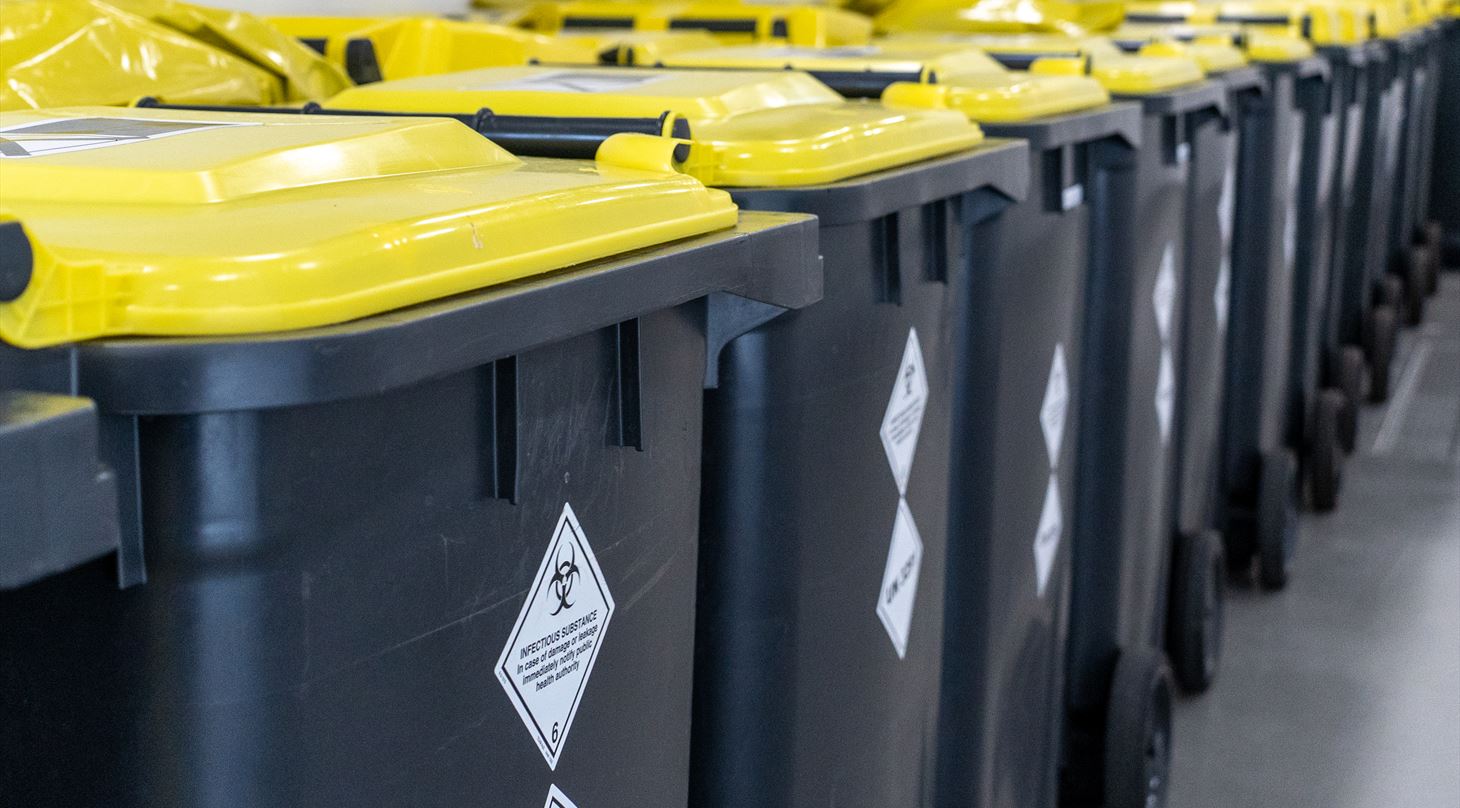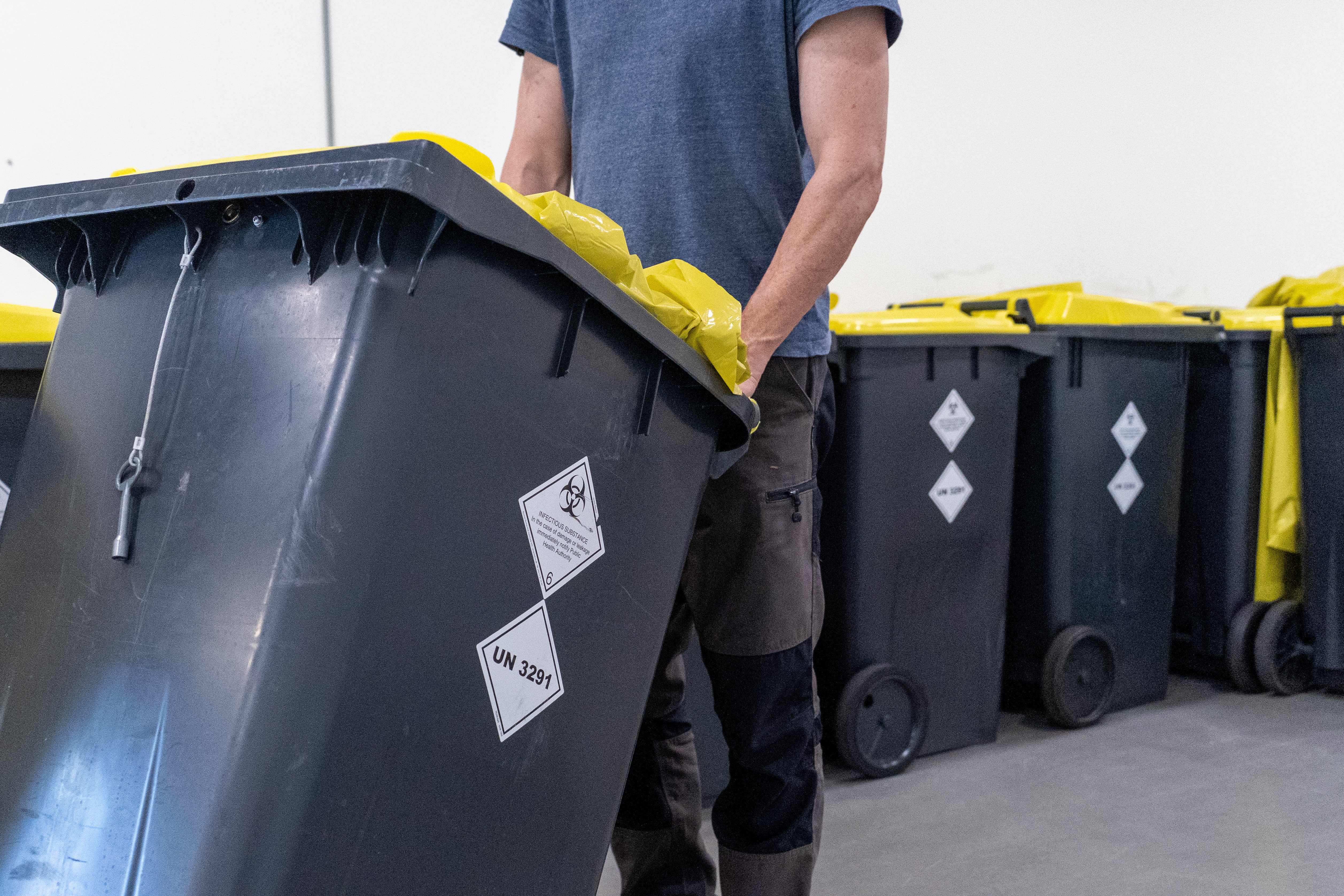
Giving contaminated disposable medical products a new life
Danish hospitals produce 4.4 tonnes of waste per hour. A new collaboration between industry, hospitals and researchers will establish infrastructure for the recycling of disposable medical devices.
Every hour, Danish hospitals produce 4.4 tonnes of waste, of which approximately 75 percent currently ends up in incinerators. A Danish-led partnership, HoliMed, will now establish a circular system to recycle valuable materials from disposable medical equipment.
- We have big ambitions in HoliMed because in addition to developing technologies for sorting and recycling, we are also working with traceability, behavioural design and regulatory frameworks. It's a holistic approach to recycling, where the goal is a completely new circular infrastructure for medical devices," says Senior Project Manager Søren Haack from the Danish Technological Institute.
HoliMed partners include disposable device manufacturers, recyclers, hospitals and knowledge partners. Specifically, the focus will be on single-use devices such as surgical instruments, disposable endoscopes and other products containing high-quality plastics and valuable metals. Single-use devices are used for hygiene reasons and to improve workflows but are only used for a short period of time and are then sent for incineration because they are classified as ‘clinical risk waste’. However, the Danish Environmental Protection Agency has opened the door for these types of products to be recycled under controlled conditions in the future.
From many sorting bins to one
There are already examples of specific disposable products being collected and attempts made to recycle them, but HoliMed wants to develop an open system where contaminated disposable equipment of different types can be thrown into one bin and later sorted centrally. Johnson & Johnson, which manufactures disposable medical devices, sees the partnership as an opportunity to create something new that will benefit the healthcare sector.
- The cross-sectorial nature of the HoliMed project is of paramount importance for the success of the project. We at J&J are confident that this project will lead to a real break-through in hospital practices regarding single used devices, in the end benefitting us all, says Petri Elmgren, Marketing Manager at Johnson & Johnson Medtech Nordics.
To be exported to Europe
A key player and lead applicant in the partnership is NG Nordic Medical Recycling, which specialises in cleaning and recycling the materials from disposable medical devices that would otherwise end up in incinerators. The company will act as the link that receives the products from hospitals, decontaminates them and extracts the materials that can be used in new products.
- The goal is to create a solution that ensures that valuable materials are returned to the cycle. This is both good for the environment and creates new business opportunities. We want to lead the way together with our partners in HoliMed and, in the longer term, scale the concept to other countries in Europe, says Thomas Mørch, CEO of Zirq Medical, says Thomas Mørch, CEO of NG Nordic Medical Recycling.

Digital solutions for safety and environmental documentation
A key element of HoliMed is the development of digital solutions to ensure full traceability of medical devices from manufacturer to operating theatre and from waste bin to new use.
The digital solutions will also enable hospitals and manufacturers to document their CO2 savings, which is crucial for achieving the healthcare sector's climate goals.
The Central Denmark Region's Centre for Sustainable Hospitals sees great potential in this part of the project as it supports the regions' goals of 70% waste recycling by 2030 and halving CO2 emissions by 2035.
- With an infrastructure that makes it easy for staff to sort products at the end of their use and ensures the recycling of valuable materials, we can both reduce our climate footprint and create a more sustainable healthcare system without compromising productivity, patient safety and the working environment, says Marlene Fredborg, Head of the Centre for Sustainable Hospitals in Central Denmark Region.
About HoliMed
The HoliMed partnership (2025-2027) will establish a circular infrastructure for disposable medical devices, transforming clinical hospital waste from an environmental burden into valuable resources for recycling and reducing the healthcare sector's carbon footprint.
HoliMed is a mission-driven green TRACE partnership supported by Innovation Fund Denmark with a budget of DKK 21.5 million - of which DKK 12.8 million is funded by Innovation Fund Denmark
HoliMed brings together key players from the entire value chain with the Danish Technological Institute as project manager:
- Medical device manufacturers: Ambu and Johnson & Johnson
- Recyclers and manufacturer: NG Nordic Medical Recycling (Zirq Medical) and Letbek
- Digital platforms: Resourcify
- Public partners: Central Denmark Region's Centre for Sustainable Hospitals
- Research and knowledge partners: Danish Technological Institute, Copenhagen Business School (CBS) and Roskilde University (RUC)
Professional contact
Søren Haack
Senior Project Manager, Danish Technological Institute
Mobile number: +457220 2338
E-mail: sorh@teknologisk.dk
Press contact
René Wad Andersen
Senior Communications Consultant, Danish Technological Institute
Mobile number: +457220 1474
E-mail: rea@teknologisk.dk